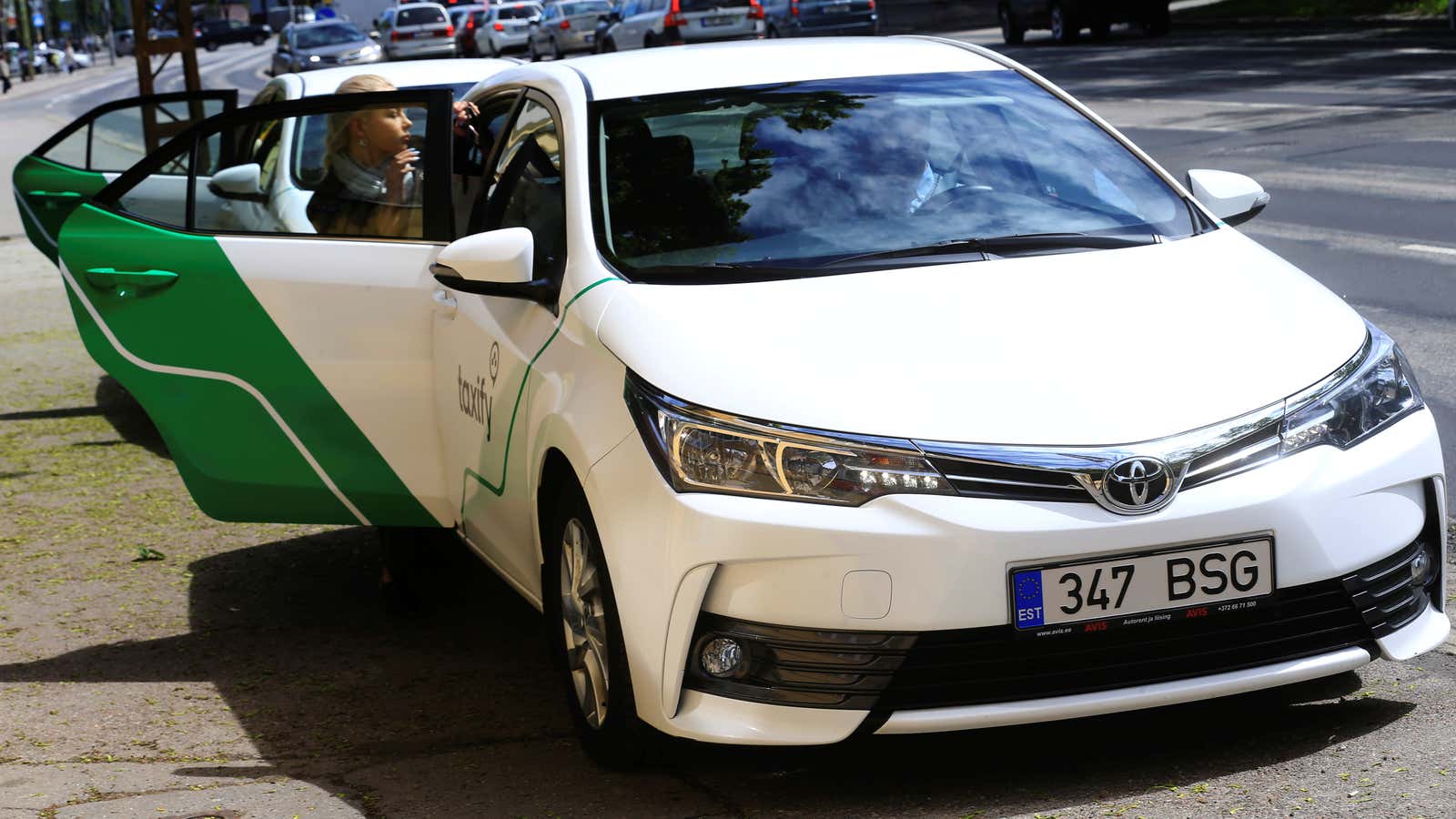Ride-hailing company Taxify is taking the fight for market share in Africa with Uber to places where Uber isn’t.
The Estonian company which has grown to become Uber’s biggest rival in Africa is pursuing an expansion strategy that’s focused on not only operating in major cities across Africa, like Uber does. Taxify has also been expanding to smaller cities and now operates in more African cities than Uber.
In Nigeria, in addition to Lagos and Abuja, the only two cities where Uber currently operates, Taxify has launched operations in Ibadan, Nigeria’s largest city by land size, and Owerri, a bustling commercial center in the southeast. While neither city matches Lagos or Abuja as urban centers, they have sizable business districts and populations of over 1 million people each. In Tanzania, while Uber has stuck only to Dar es Salaam, Taxify operates there as well as in Dodoma, the nation’s capital and in Mwanza, a tourism hotbed on the shore on Lake Victoria.
In South Africa, Taxify continues to compete with Uber in Cape Town, Durban, Johannesburg and Port Elizabeth but has also expanded to Polokwane. It is set to also launch in East London later this month—a move that will see it surpass Uber for the number of African cities operated in. It will also mean Taxify operates more cities in South Africa than anywhere else.
Much of Taxify’s expansion has been bankrolled by its recent $175 million capital raise—a funding round which valued the company at more than $1 billion. Taxify’s backers include Daimler, the German car giant and Didi Chuxing, the dominant ride-hailing business in China which is also known for backing Uber’s rivals elsewhere. As it continues to grow and attempt to win over riders, Taxify’s lower commissions on fares are also a tactic to win over drivers.
For its part, Uber, which has now operated in African cities for five years, is also eyeing more expansion with Rwanda, Ivory Coast, Senegal and Mauritius among potential targets. And showing a willingness to adapt to local markets, it has also introduced lower cost ride-hailing options with rickshaws in Kenya and motorcycles in Uganda.
